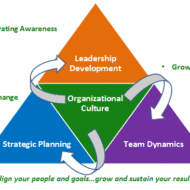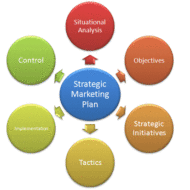Posted by Managementguru in Entrepreneurship, Human Resource, Organisational behaviour, Principles of Management, Training & Development
on Mar 31st, 2014 | 0 comments

Defining Organizational Culture Business is an integral part of the society; and it influences other elements of the social system, which in turn affect business. The entire sphere of business activities are influenced by the social structure and culture of a society. The social system is influenced by the way the business functions, innovations, transmission and diffusion of information and new ideas etc. Business activities have greatly influenced social attitudes, values, outlooks, customs and traits. However, it is very difficult and, in some cases, almost impossible to change many elements of the social environment in the short run. Hence, a business may have to anticipate and adapt to these uncontrollable external environments. Socio-cultural environment refers to the influence exercised by certain social factors, which are “beyond the company’s gate“. This includes attitude of people towards: Work Wealth Knowledge Family Marriage Religion Education Ethics and social responsibility of business. Belief System Influencing the Action: Culture is something that is evolved in a society over a long period and it represents the unified belief system of a large group of people. An organization can be distinguished from another by way of its culture, since organizational culture is unique in its perspective and methodology. When people from different social backgrounds are made to work under the same roof, a corporate organization acquires a distinct culture. Culture conveys a sense of identity for the organization. It facilitates the generation of commitment to do something noble than one’s own self-interest. Cultural Differences: As business go international, the need for understanding and appreciating cultural differences across countries is essential. Any move from one country to another will create a certain amount of confusion, disorientation and emotional upheaval. Especially, people form Asian countries that migrate to the west are subjected to what is called a “culture shock”, in terms of attitude, working style, language, way of life, dress codes and negotiating styles. Freshers may adapt to these changes quickly, since they are natural and easy to be trained. The problem arises with individuals who had been working under a totally different cultural setup from that of the new cultural environment; they will have to undergo the process of ‘unlearning‘, which is more like swapping old ideas for new ideas. This change process is what both the employees and the management find challenging; but ultimately what needs to be done has to be done. Culture Shock: Multi national and Trans national companies, which have business establishments in different parts of the world, must be prepared to cope with the culture shock. Since huge investments go into their projects, they have to think and analyze about the cultural and social aspects that have a definite impact on the working of organisations. For example, the work attitude of employees in the west might lay emphasis on services and results, oriented towards self-improvement; while that of the Asian counterparts may be patience and sacrifice rooted in emotions and loyalty. Business can be considered as a large social network serving to satisfy economic and social interests; culture acts as the social glue that helps hold the organization together by providing appropriate standards for the behavior of organization members. Slogans of Some Reputed Organizations in the Industry: Nokia: Connecting people Jet Airways: The joy of flying Reliance Industries: Growth is life Citibank: Your citi never sleeps The above cited examples give you a fair idea about what a particular company stands for. The orientation of these companies, expressed in the form of SLOGANS contributed to the successful conduct of their...

Posted by Managementguru in Business Management, International Business, Marketing, Principles of Management
on Mar 11th, 2014 | 0 comments

Key Strategies of Global Marketing Globalization means many things to many people. For some it is a new paradigm – a set of fresh beliefs, working methods and economic, political and socio-cultural realities in which the previous assumptions are no longer valid. For developing countries, it means integration with the world economy. It can be better understood if we look it at this perspective- “the world integrated into one huge market”. It calls for the removal of all trade barriers among countries and a perfect competitive market prevails and the stress can lead to many positive and possible outcomes in terms of QualityQuantityUniquenessForeign exchangeBenefits to the host countryIncreased productivity leading toEconomic growth Well, it does not end there. An MNC (multi national company), by operating in more than one country gains r and d, production, marketing and financial advantages in terms ofcost and labor that other competitors may not enjoy. The global company views the world as one market, minimize the importance of national boundaries, sources, and raise capital and markets wherever it can do the job best. Why do companies go global? One reason could be the rapid shrinking of time and distance across the globe thanks to faster communication, speedier transportation, growing financial flows and rapid technological changes. It is being realized that the domestic markets are no longer adequate and rich. Japanese have flooded the U. S. Market with automobiles and electronic goods because the home market was not big enough to absorb whatever was produced. Companies at the first stage of globalization have only passive dealings with foreign individuals and organizations. By the second stage, companies deal directly with their overseas counterparts, though they might continue to use third parties also. The company might decide to set up an import or export department. Next comes the shedding of domestic capacity and floating an international organization and have a direct hand in exporting, importing, and perhaps producing goods and services abroad. Seldom companies reach this stage, even if they do, they recede later. The company can have a strong foothold in the countries it is organizing its activity only by way of * Superior product quality* Demand* Customer preference for that particular product range that the company offer* A dynamic CEO projecting and boosting company’s image,* Brand image* Availability of skilled labor* Licenses* Access to necessary infrastructure* Feasible financial structure* Viability in the long run* Marketing mix Chennai in India has become a hub for so many corporate as well as global companies since the business climate is very favorable and enterprising. Some of the strategies in globalization would be * Deciding whether to go global* Deciding which markets to enter* Deciding how to enter the market* Learning to handle differences* Adjusting the managing process* Deciding organization structure* Selecting a managerial approach. Developing countries like India have adopted new economic policies that are expected to encourage the international companies setting their foot in India, by which it compels many Indian companies to pursue internationalization vigorously. True globalization marks the beginning of a new economic era of growth and...




